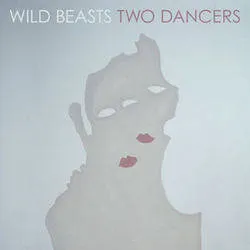Interview The Producers: Richard Formby
DIY speaks to the man behind the desk for recent Wild Beasts, Darkstar and Ghostpoet records.
The Producers is DIY’s means of meeting the people behind the desk, the minds behind the names in album sleevenotes. Speaking to the likes of Owen Morris (who oversaw Oasis’ glory days) and Charlie Andrew (who was behind Alt-J’s ‘An Awesome Wave’ debut), it’s easy to see the passion that exists within your average producer, and their ability to do more than an apply a certain aesthetic to any given record.
Richard Formby is relatively unique in that, even while calling him up in the early hours of the morning, he speaks eagerly about a meeting with a new musician, taking place later in the afternoon. He’s an avid new music fan, despite his admittance that bands think ”oh, he’s older than we thought” when they first meet him. His work on Darkstar’s ‘News From Nowhere’ and Ghospoet’s ‘Some Say I So I Say Light’ have tied him to two of 2013’s most crucial releases to date, while work on Wild Beasts’ past two records have seen him associated with one of the UK’s seminal acts. He’s seen relatively unknown acts progress from lesser beings into Mercury Prize nominees, and it’s progress that shows no sign of stopping from a guy who doesn’t like looking back.
I noticed you’ve been remixing the likes of Woman’s Hour, and you’re working on one for WALL. Is remixing a process you’re quite new to?
I’d always done it. You go with what you feel with remixing. I tried to stick to original most of the time. I’m not sure I’ve done that with this WALL one. It’s gone a little bit overboard. It sounds very German, 1970s now. Her original song had a one note bassline which I quite liked. If I can just use one note I’ll do that. I prefer two chords to three.
How do you surround yourself with new music? It sounds like you make quite an effort to stay up to date.
I have to really make the effort to go to gigs. If I’m in a studio doing something then I find it very difficult to stop. The Live At Leeds thing was on at the weekend, I was there for most of the day. It’s just online really. I go through sites like yours and follow links. It’s quite difficult - I imagine it’s like an A&R man in an old record company going through a box of tapes, hoping that something jumps out. I find it quite difficult to judge, though. I think my main problem is I can miss something quite big that’s gone by. I listen to music all the time - that tends to be what I do at home. It always has been on, all the time. Sometimes it can be an effort - sometimes it feels like work when I’m listening to new bands. Then when I’ve finished I’ll put on a Conrad Schnitzler record.
Do you often start records having heard nothing before? You mentioned that was the case with Darkstar.
It was the same with Ghostpoet. With some of the big people, unless you’re paying attention at the right time, it passes you by. I didn’t know how much of a big deal he was until I started working with him. He just stood out head and shoulders above most of anything else when I started hearing his demos. If I get something from a band I tend to just try and judge it on the music, rather than see how they fit into the scheme of things.
Context can be important but it’s the record you’re working on then and there that matters.
Yeah. It’s the same with influences. You can’t avoid them but in some ways I think it’s nice to make a record you think’s gonna last. That’s the ultimate aim. If people are going to play the album in ten years time, rather than adding a small piece to a scene. I don’t think anyone makes a record with that intention, but if you listen to music the influences come through but you have to learn to channel them. I let people make their own records. I just try and guide them through it. I say to everyone I work with, ‘it’s not my record, it’s yours.’ If we ever disagree on something we just try and have a discussion about it. Ultimately it’s the artist’s record. I think it’s quite a responsibility, being a producer. It’s a strange thing really - not just a matter of finding weird sounds to go on someone’s songs. You’re responsible for the budget sometimes, you have to bring things in to standard in the right time frame, with the money available. You have to make sure you get the best out of people. It’s fascinating.
The role of a producer is a big-spanning role. You’ve had roles beyond a producer too - you’ve played with Mogwai, for example.
I was for about three years, in the early 90s, a full-time musician. I’d already been doing the studio. I’ve engineered thousands of bands over the years. It’s just a good learning process. The Mogwai thing was just a guest appearance - I haven’t done a band in a long time and I’ll probably never do one again. When I was in bands when I was younger, to me being in the studio was where I always wanted to be. The thrill never disappears. Working in the other fields of music making I think I understand all the different sides of it. When computer based recording came out it seemed like a digital tape recorded, but it’s so much more than that now. My 12-year-old boy has started making tracks on Garageband. I’m still a bit old school.
On bands, specifically. Would you count Wild Beasts as a band?
Well, within the past year I’ve moved away from bands a little bit. It’s just the way it is. I’m not completely in control of what I work on. I don’t go up to a band and approach them. It’s all timing. This past year I’ve done more of the electronic-based records, which is good. I’m into that. Nothing against bands - Wild Beasts are a band, ‘Two Dancers’ is almost like a simple live recording. ‘Smother’ is put together like an electronic record, but it’s still them.
Did you have much of an influence on taking the theatrical elements of ‘Limbo, Panto’ and almost toning Wild Beasts down to an extent and bringing them towards the sound on ‘Smother’?
They know what they’re doing. I think they realised if they toned it down a little bit…They divide everybody, don’t they? I think they’ve managed to find the right balance without compromising what they do. I don’t understand why people have a problem with Hayden’s singing, but with ‘Two Dancers’ there was a feeling that it should be toned down, straightened out. Maybe it came from me, maybe Domino, but most of all it would’ve come from the band themselves. Not just within the vocals. Musically the songs because straighter. Less broken up. The communication between them is fascinating. They’re really good at re-writing and changing aspects of songs. The same with Darkstar: That’s the difference between bands and guys like Wild Beasts, and Darkstar, to know what they’ve started with isn’t necessarily the best thing. Sometimes it’s just recreating the demos. But you need to be open to change. The better-known bands do this. You can go down all sorts of routes and directions, and ideas within songs - if you just limit yourself to what’s in the demos there’s no point, really. The best bands explore and make a decision. That’s kind of what I try and do.
Is there one album you associate yourself with more than others?
I don’t really look back, really. I’m not very good at it. Once they’re done, they’re done. I mean, even though they’re new, Darkstar, Ghostpoet and ‘Smother’ are the three. I don’t know if I’d want to define myself - I’m always looking ahead. You carry this past and baggage with you but you just need to keep moving forward really. I don’t want to be static and say ‘this is what I’ve achieved.’ I never saw pride as a good thing. You always need to keep pushing forward. Because it’s interesting. I’m not very ambitious - I’m very bad at pushing myself, actually. But just in terms of my own interests, my own sanity, I push on. I try not to be too precious about things.
Do you feel like you come with a reputation when bands meet you?
I’ve no idea. I think the first thing they think is ‘oh, he’s older than we thought.’ I think I probably do have a reputation. In my line of work and in a lot of things, you don’t really hear the negative. And sometimes you just want someone to turn around and say ‘this isn’t very good.’ Sometimes positive reviews don’t offer a great deal. Negative ones are much more interesting, and tell you a lot more about what you’re doing. If someone wasn’t happy about something they have to say. Some bands are a bit nervous - you can usually judge when a group doesn’t like what you’re doing though. If you have an opinion on something you should give it. I don’t really view myself as anything. I don’t know what people see me as - I’m just the same bloke I’ve always been all my life. I just like being in the studio, making records and experimenting. I’ve always liked that - I suppose I just get paid for it these days.
Read More
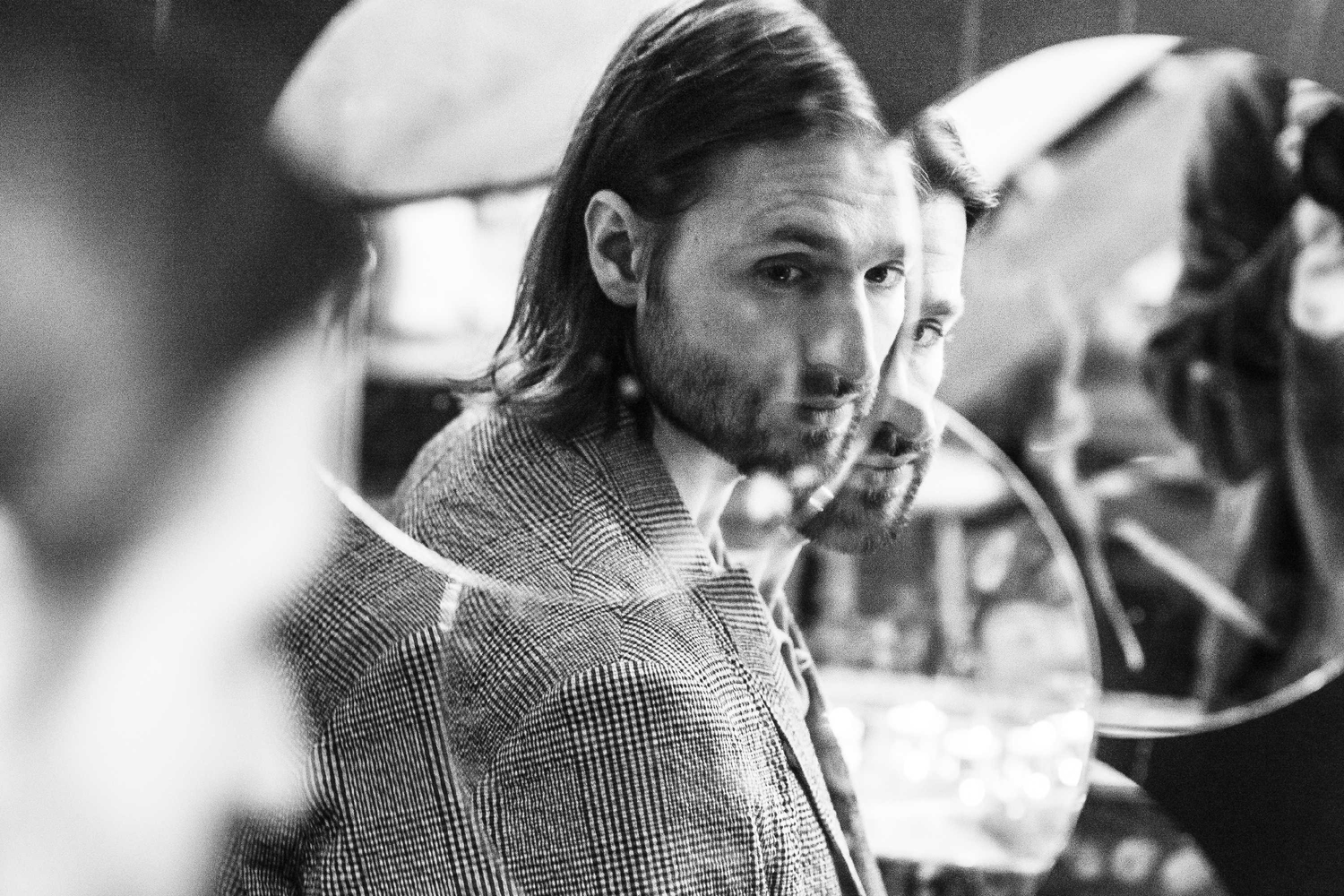
Suspending the madness: Hayden Thorpe
On his debut solo album 'Diviner', the former Wild Beasts frontman finds spiritual freedom in surrendering yourself to the universe, and the power of carving out new beginnings.
12th April 2019, 12:05pm
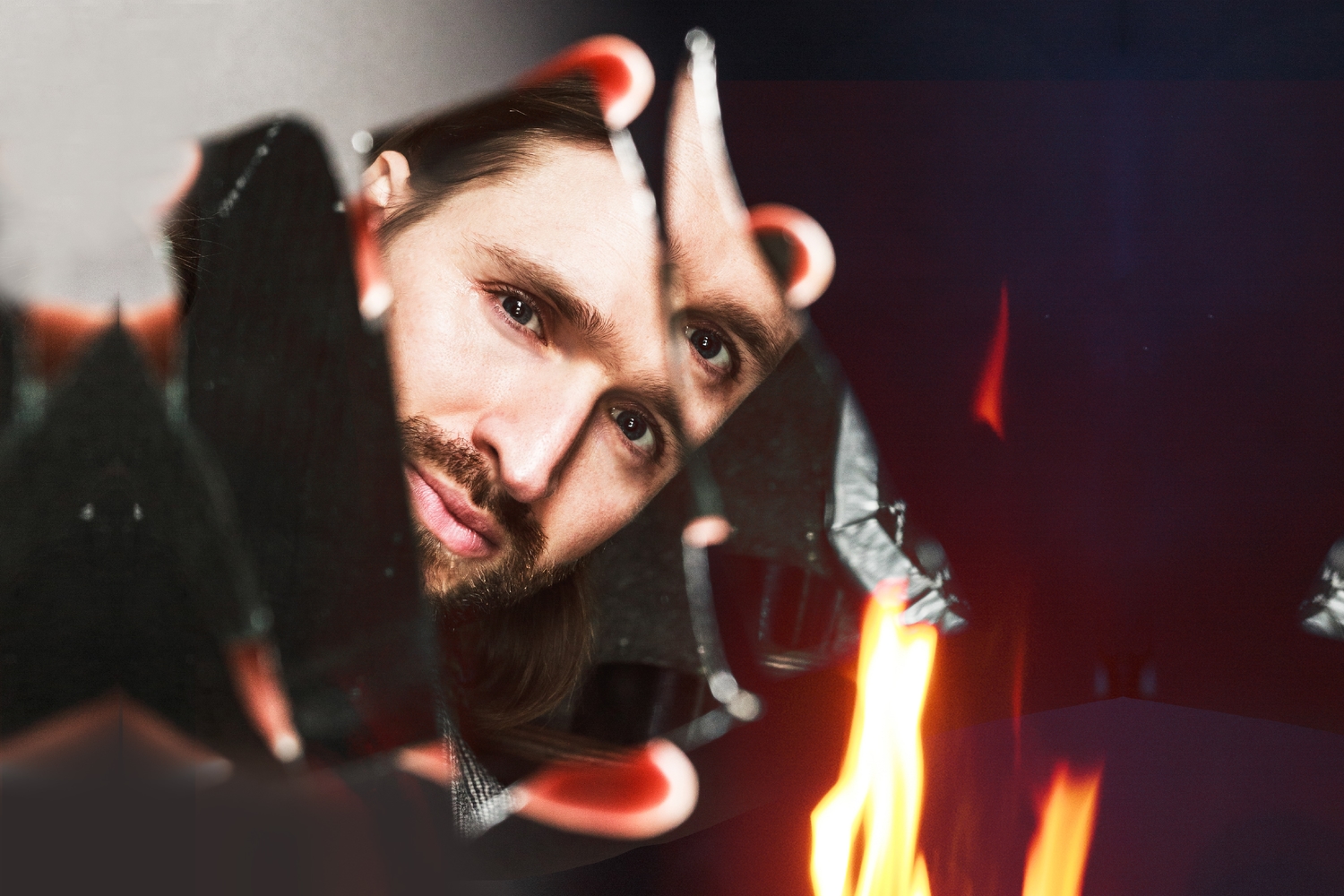
Hayden Thorpe fronts the April issue of DIY
Also featuring Stella Donnelly, Foxygen, PUP, Whitney and more, the new mag is out on Friday (12th April).
9th April 2019, 12:00am
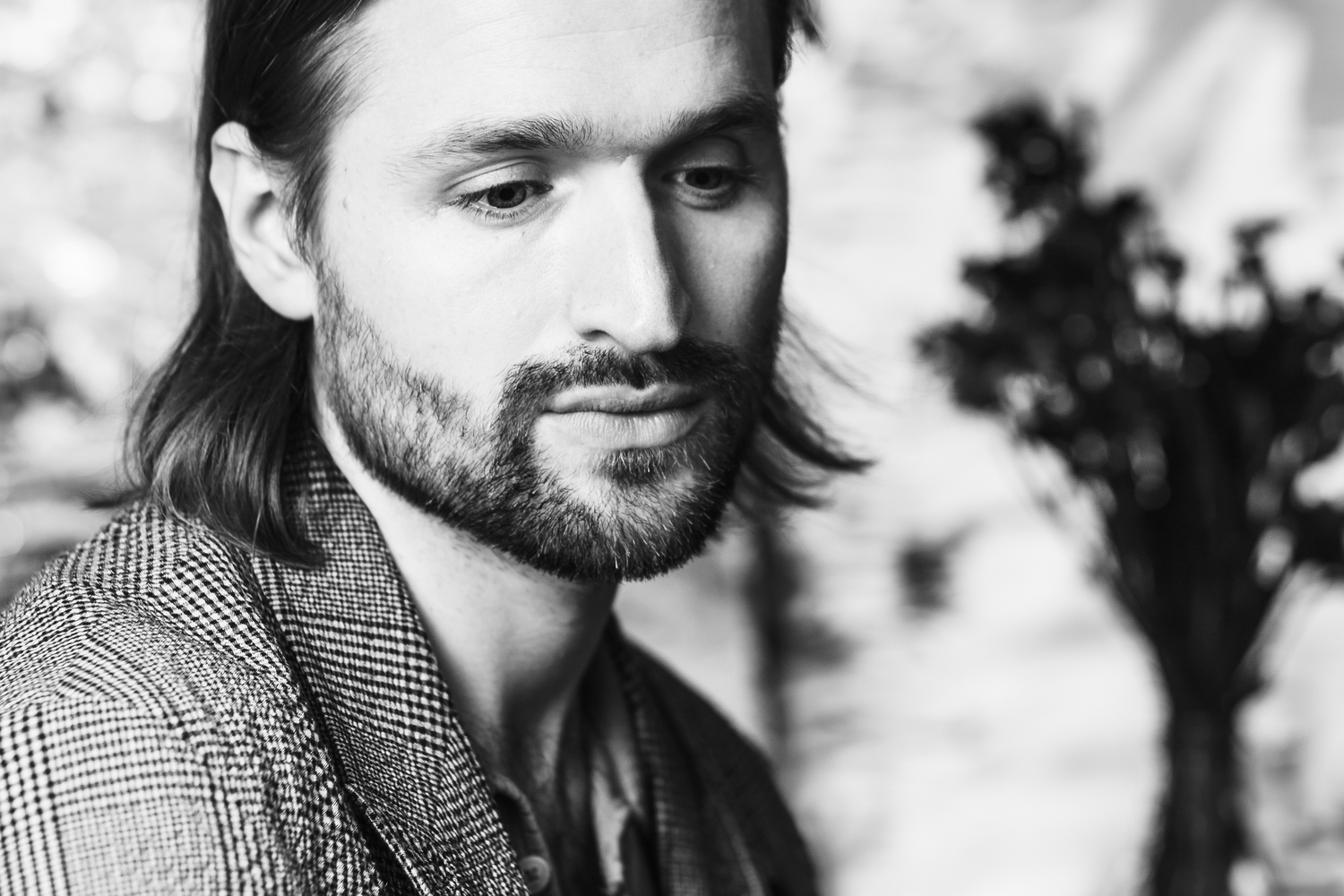
Hayden Thorpe: “At times it felt like trying to land a jumbo jet without the qualifications”
The former Wild Beasts frontman talks new beginnings in the April issue of DIY - preview our new cover feature.
9th April 2019, 12:00am
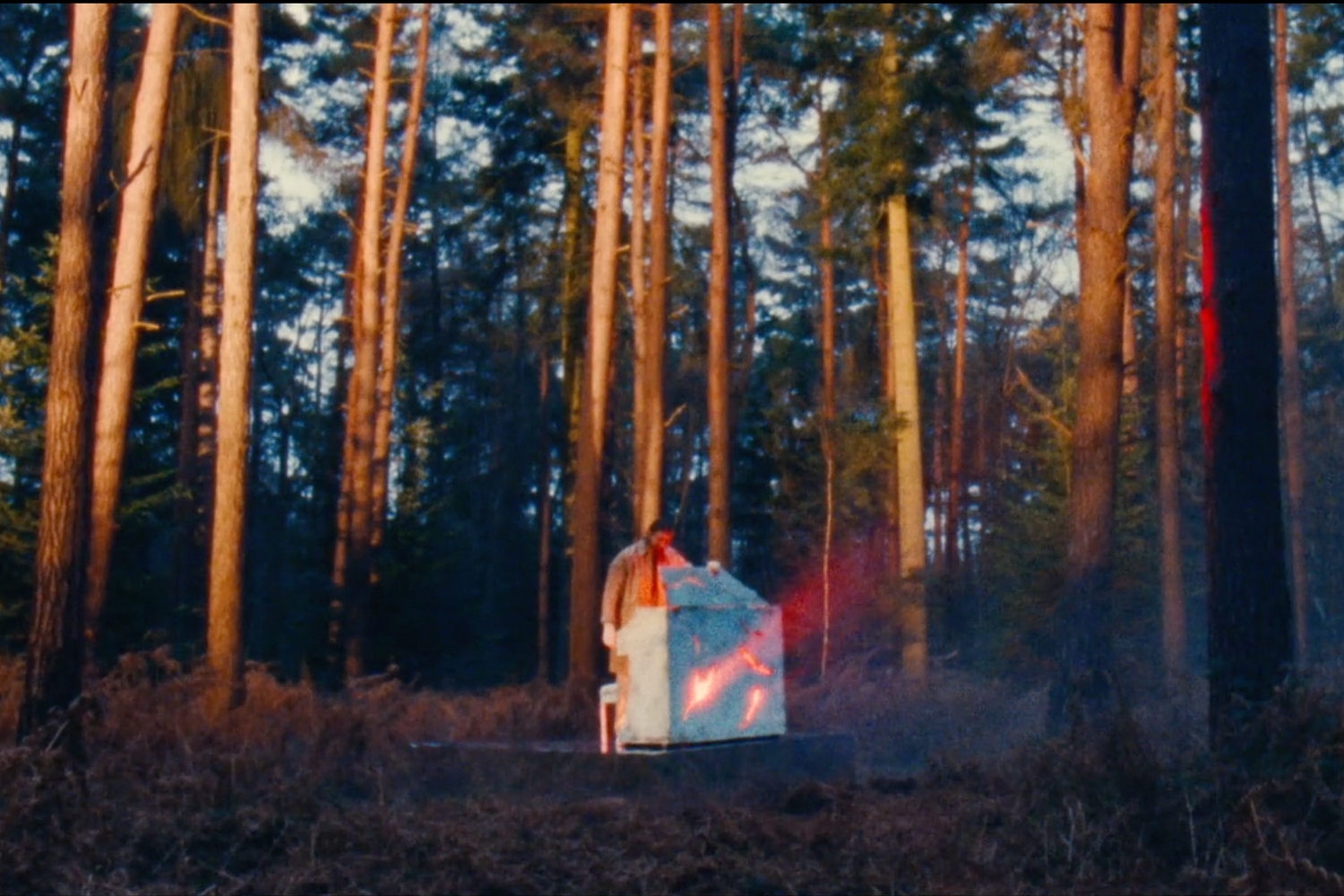
Former Wild Beasts frontman Hayden Thorpe returns with debut solo track ‘Diviner’
The tender offering comes along with a gorgeous new video.
21st February 2019, 12:00am
With Bob Vylan, St Vincent, girl in red, Lizzy McAlpine and more.
